Father, may we benefit from the example of Your martyrs Marcellinus and Peter, and be supported by their prayers. Grant this through our Lord Jesus Christ, Your Son, who lives and reigns with You and the Holy Spirit, one God, for ever and ever. Amen.
Today, June 2, we celebrate the feast of
Saints Marcellinus and Peter (died 304), early Church martyrs. While very little is known today about the lives of these holy men, Marcellinus and Peter were prominent enough in the early Church to be included amongst the saints of the Roman Canon, and their names continue to be mentioned during celebration of the Eucharist. Further evidence of the veneration and respect of the Church lives on in the basilica that Emperor Constantine built over their tombs in Rome.
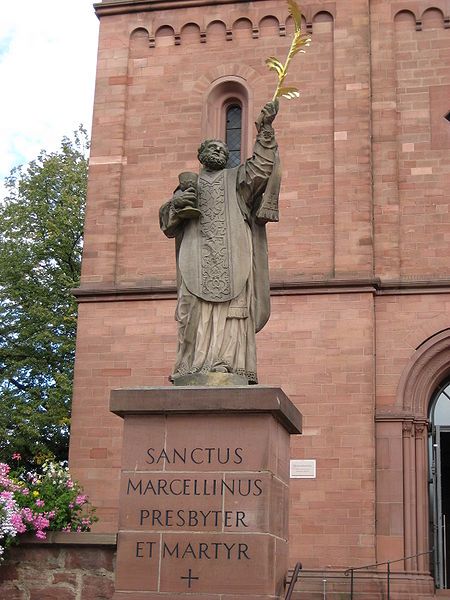 |
| Saint Marcellinus |
The story of the lives and martyrdom of Marcellinus and Peter was recorded by Pope Saint Damasus, who learned of their heroic acts directly from their executioner—a man who converted to Christianity shortly after their deaths. Per the saintly pope, the executioner was deeply troubled following his role in the martyrdom, and could not shake the feeling that a faith that had given Marcellinus and Peter such peace of mind and steady joy in the face of death must be authentic.
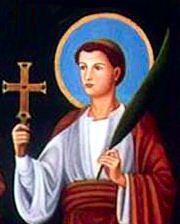 |
| Saint Peter |
According to Holy Legend, Marcellinus was a priest, and Peter was an exorcist (authorized by the Church to work against demonic possession in individuals) who worked alongside him. Imprisoned during the persecution of Christians under the reign of Diocletian, Marcellinus and Peter embraced their suffering, seeing it as an opportunity for evangelization, and quickly had converted the majority of prisoners in jail with them—including the jailor and his entire family. This was accomplished when Peter set the daughter of the jailer free from an evil spirit which possessed her. Shortly thereafter, the jailor, his wife, and their other children were baptized into the faith—right in the cell of Peter and Marcellinus.
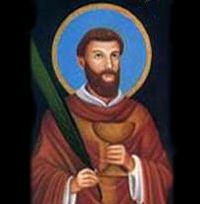 |
| Saint Marcellinus |
When Diocletian heard of their activities, he was greatly incensed and had them tortured, stripped naked, and thrown into cells filled with only broken shards of glass. When it was observed that this only served to increase their faith and joy in suffering, he had them taken to the forest of Silva Nigra, and dig their own graves. Then, he had them beheaded in the forest, so that other Christians would not find their bodies, bury them properly, and then subsequently venerate them. However, that was not to be the case. Shortly following their death, a Christian matron by the name of Lucilla learned of their martyrdom through a dream (or possibly a prophetic vision), and came with some fellow faithful to the gravesite. The relics of the holy martyrs were removed and translated to a more proper burial place, a set of catacombs in Rome. When Christianity was restored as a “legal” faith tradition under Constantine, he had a great basilica built over their tomb, in their honor.
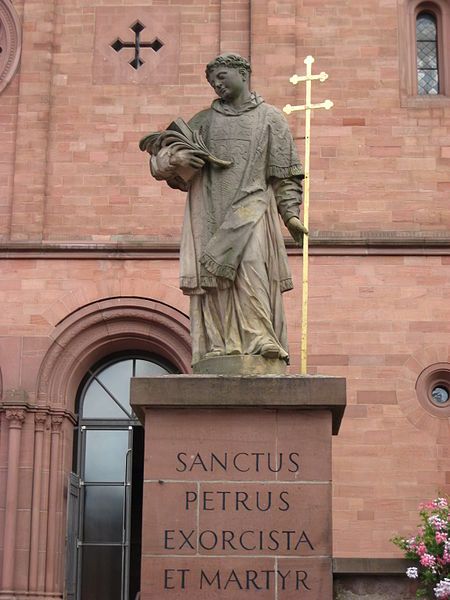 |
| Saint Peter |
The foundation of our faith rests on the lives of the holy men and women of the early Church who willingly gave themselves over to the faith, courageous and joyful in their martyrdom. When we consider the struggles of today, and our own personal difficulties in daily life, we might pause to consider the sacrifice of these early martyrs. How might we demonstrate our love for the Lord, and our faith, today?
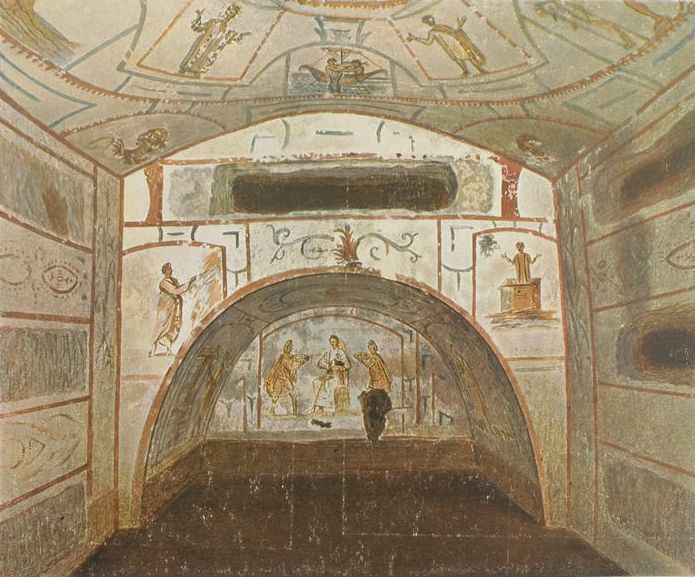 |
| Catacombs of Saints Marcellinus and Peter |
O God, Who by the glorious confession of the holy martyrs
Marcellinus and Peter,
dost surround and protect us,
grant that we may go forward under their protection
and be sustained by their prayer.
Through our Lord Jesus Christ, your Son,
who liveth and reigneth with Thee in the unity of the Holy Spirit,
God, forever and ever.
Amen.












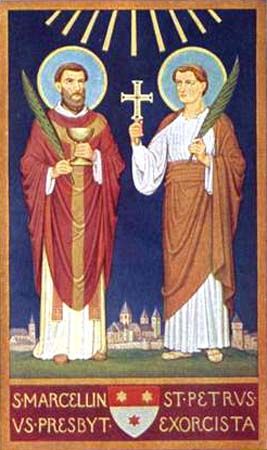
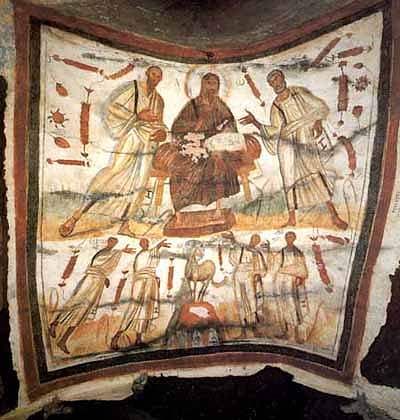
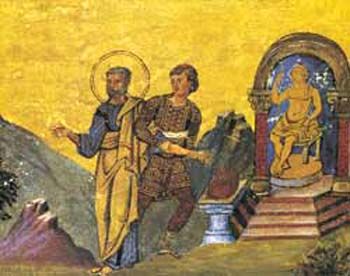
0 comments:
Post a Comment
Thanks for leaving a comment. If you wish to submit a prayer request, however, please do so above, using the "Contact" tab.